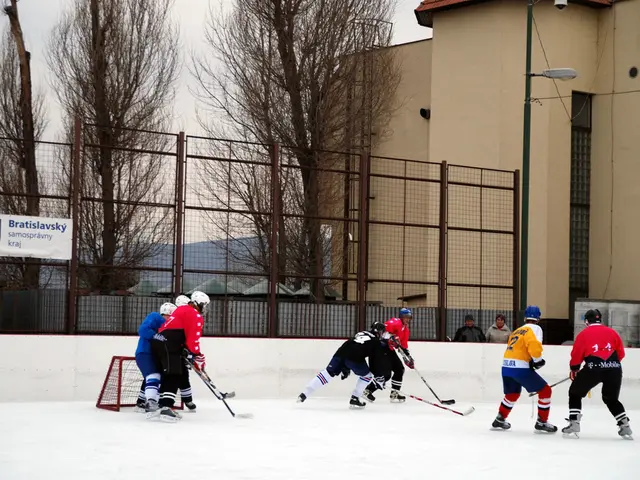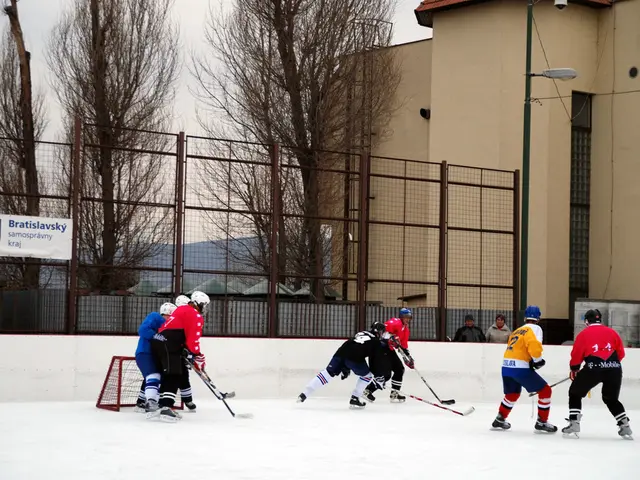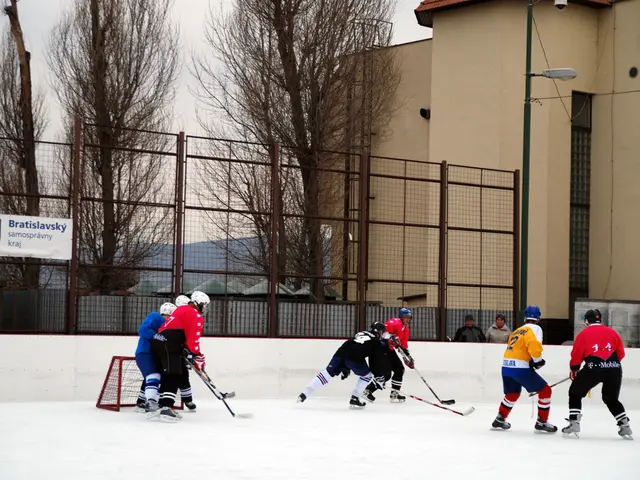Unveiled in Baku: Political Tussles between SPD and CDU, and Putin's Allies
Political representatives from SPD and CDU converse with Putin's trusted associates
Breaking News Instagram LinkedIn Telegram Signal Reddit
In an eyebrow-raising twist, politicians from SPD and CDU reportedly found themselves in Baku, Azerbaijan, for a cloak-and-dagger meeting with Moscow representatives. This flurry of activity in mid-April, initially kept under wraps, has since been brought to light, sparking a wave of controversy. Now, the German participants are mounting a defensive stance, backed by a public declaration.
ARD's Kontraste and Die Zeit have unearthed a German delegation that journeyed to Baku from April 13 to 14, 2024. This delegation consisted of SPD MP Ralf Stegner, ex-Federal Chancellery chief Ronald Pofalla (CDU), ex-Brandenburg SPD Minister-President Matthias Platzeck, ex-NRW CDU Europe Minister Stephan Holthoff-Pförtner, and long-time CEO of the Petersburg Dialog, Martin Hoffmann. On the Russian side, participants included former Russian Prime Minister and current Gazprom Supervisory Board Chairman Viktor Zubkov, and Chairman of the Russian Human Rights Council, Valery Fadeyev — a figure on the EU sanctions list for distributing war propaganda and disinformation.
Politics: Merz, Trump, and the Ukraine Crisis: "Putin's Proposal Signals a Panic"
Since April 2024, there have been at least three such meetings, according to reports, with discussions centering around reviving the Petersburg Dialog. This contentious diplomatic format, between Germany and Russia, was first established in 2001 by former Chancellor Gerhard Schröder and Kremlin leader Vladimir Putin to foster business and strengthen diplomatic relations. The dialogue forum was formally suspended in 2022 following Russia's massive incursion into Ukraine.
"Did He Carry a Second Phone?"
News of the Baku meetings stirred up a tempest in the German political landscape, with Stegner in the hot seat. Criticism rained down, particularly as he was a member of the parliamentary control committee for intelligence services in the last Bundestag. CDU MP Roderich Kiesewetter posed challenging questions to the SPD politician. "It's unacceptable that we hash out the security policy of the Federal Republic of Germany and the capabilities of our services intensely on one hand, and find ourselves unwitting participants in Russian discussion events on the other," Kiesewetter stated. "Did he travel with a second phone? How did he ensure his safety?"
SWP Russia expert Sabine Fischer argued that the Baku meetings undermined Germany's hard sanctions policy against Russia. According to her, Moscow's primary objective with such meetings is to covertly influence German politics.
Stegner, Pofalla, Platzeck, and Holthoff-Pförtner have since published a joint defense of their meeting with Russian representatives in Baku. "Engaging in dialogue with all parts of the world, including Russia, is a fundamental principle of good foreign policy, particularly in times of escalating tensions, conflicts, and wars," the statement read.
Other Perspectives: Such conversations are naturally confidential, "but not secret negotiations for which neither of us has a mandate and in which government agencies are not involved in any way." Politically accountable individuals were aware of these discussions, but government representatives neither initiated nor prepared or supported the talks. According to information from SZ, among other sources, the then-Federal Chancellor, Olaf Scholz, was informed about the attempts to hold talks.
- The community policy concerning the personnel exchanges between SPD and CDU members has been in question, as reported meetings between these parliamentarians and Moscow representatives took place in Baku, Azerbaijan.
- One SPD MP, Ralf Stegner, who previously served on the parliamentary control committee for intelligence services, has been under scrutiny for his attendance at the Baku meetings with Russian figures such as former Prime Minister Viktor Zubkov and Valery Fadeyev.
- In the context of ongoing politics and international relations, these meetings have sparked debate among German parliamentarians, with CDU MP Roderich Kiesewetter questioning Stegner's safety measures and possible dual phone usage.
- The employment policy of ex-politicians like Stephan Holthoff-Pförtner (CDU) and Matthias Platzeck (SPD) has come under investigation, considering their active participation in the Baku meetings with Russian counterparts.
- Lobbyists within the German political circles, such as Martin Hoffmann, the long-time CEO of the Petersburg Dialog, have been accused of undermining the country's hard sanctions policy against Russia by facilitating meetings in Baku.








